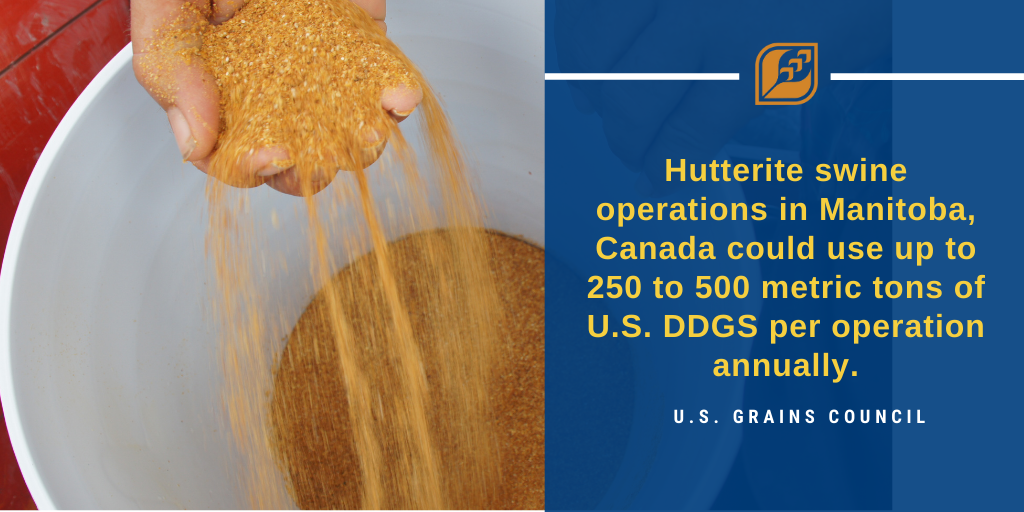
To reach the Mennonite community and their cattle industry in southeast Mexico despite travel restrictions in 2020, the U.S. Grains Council (USGC) shifted its strategy to sharing information and resources about U.S. distiller’s dried grains with solubles (DDGS) via WhatsApp, text message capsules, and webinars in the local language. This approach allowed recipients of the information to forward it electronically to friends and neighbors – an approach that proved successful in turning the tide of challenged DDGS sales to the region. To build on that successful model, Council staff in Mexico expanded the effort into the Mennonite communities in the Mexican states of Campeche and Yucatan and across the border into Belize.
Representing 17 percent of all U.S. DDGS exports, Mexico was the largest buyer in 2019/2020 at nearly 1.8 million metric tons, and while sales to southeast Mexico cattle producers are small compared to the northern Mexican market, they continue to represent an area of growth and expansion for U.S. exports to the region.
Capitalizing on that successful virtual engagement in Mexico, the Council also began promotion of the nutritional and economic value of U.S. DDGS with Hutterite swine producers in western Canada.
Mennonites, Hutterites and Amish all share a similar religious origin. Like the Mennonites in Mexico, the Hutterites in Canada live communally in village-like settlements centered around their farming operations. Typical swine diets in a Hutterite colony contain wheat, barley, corn and soybean meal. These producers have typically avoided DDGS as a feed ingredient due to unfamiliarity with its performance and questions about procurement, storage and other factors.
The Council partnered with Gowans Feed Consulting and Western Ag Supply to address these concerns through a webinar in mid-November. The program also included the latest market information on corn, soybeans and DDGS, as well as a value analysis of DDGS specifically for use in swine operations.
Thirty-six participants, including Hutterite swine producers who had not previously participated in USGC programs and other Western Canadian end-users, attended the webinar. An additional 10 swine producers who were unable to attend received a recorded version of the program.

